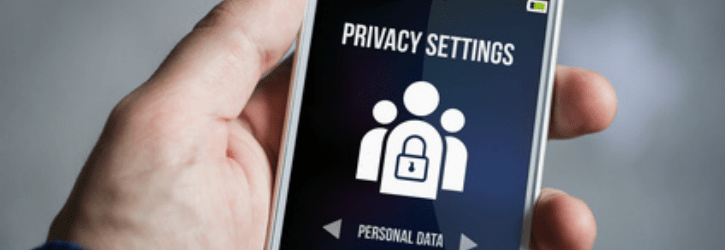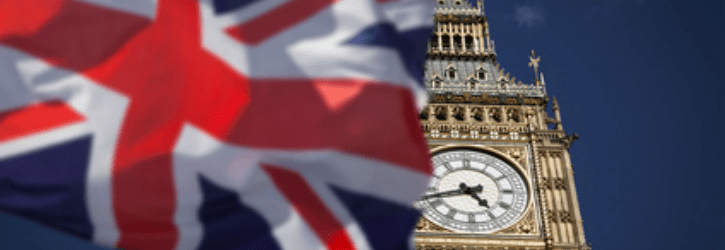Welcome To The Data Leak Lawyers Blog
We focus on the latest news surrounding data breaches, leaks and hacks plus daily internet security articles.
We focus on the latest news surrounding data breaches, leaks and hacks plus daily internet security articles.

Your Lawyers (t/a The Data Leak Lawyers) has launched a formal Virgin Media Group Action in support of the 900,000 victims affected by the 2020 data breach.
This latest group action is one of the over 45 group and multi-party data actions that the firm has launched, representing thousands of clients for legal cases on a No Win, No Fee basis. The firm launched its first action for privacy breaches back in 2014 and was appointed to the Steering Committee responsible for the overall conduct of the first GDPR Group Litigation Order (GLO) in England and Wales, the British Airways Group Action.
Now, Virgin Media has just weeks to agree to resolution terms, or an application for a GLO in this case is also set to be applied for.

We are true experts when it comes to data breach group action cases, representing thousands of clients for No Win, No Fee claims, having launched over 45 actions so far.
We have been involved in some of the biggest and earliest actions in England and Wales, and we represent clients in infamous and ground-breaking cases. We believe that those who have been harmed by a data breach deserve some form of justice for what has happened, and the GDPR can allow people to receive compensation.
Data breach compensation amounts can be substantial when incredibly personal and sensitive data is exposed or misused. Here is a little guidance about our work and an insight into two of the key actions that we are representing clients for.

You could be entitled to claim data breach compensation for the leak of private user information, and we may be able to represent you for a legal case on a No Win, No Fee basis.
We will give you an insight into how it can happen, what you can do and what you could claim for – which could be thousands of pounds for any distress that you suffer from.
To speak to the team for free advice now, please don’t hesitate to get in touch.

It has been reported that the number of Home Office data breaches is on the rise, which is a huge cause for concern given the nature of the information that they store and process.
There have been issues reported over electronic equipment and devices not being adequately protected, and documents that contain sensitive information not being properly looked after. It is understood that numbers of events in some areas have increased drastically – a matter that needs to be addressed quickly.
As a leading firm of data breach compensation lawyers, we are used to holding public sector and government organisations to account. We can tell you from first-hand experience just how devastating these types of breaches can be, which is why it is important for something to be done.

As a leading firm of UK data breach compensation lawyers, we are incredibly concerned to learn of the Greater Manchester Police data breach that may affect thousands of victims of serious crime.
Representing thousands of clients for No Win, No Fee compensation cases for individual claims and in over 45 group action matters, our team is dedicated to fighting for the rights of those whose personal and sensitive information has been exposed or misused. We have seen how damaging a leak like this can be, and we have settled serious privacy compensation claims having been specialising in this area of law for over the last six years.
If you have been affected by this incident, we may be able to help you.

You could be eligible to claim compensation for medical data leaked online, and you could be entitled to pursue a legal case on a No Win, No Fee basis.
As a leading firm of data breach compensation lawyers, this is an area of the law that we specifically specialise in. These kinds of claims can be complex, but we have been representing people for medical privacy cases since 2014. We have pioneered legal action for some of the most infamous events, including the 56 Dean Street Clinic leak of 2015. What this means for you is that you can benefit from our significant experience and we can fight for your right to justice.
Here is how we can help you today.

We can represent clients for compensation claims that can arise from an online council data leak. We can take forward eligible clients for cases on a No Win, No Fee basis.
One of the more common types of cases that we take forward are for council data breach compensation claims. They can be common given the nature and the extent of the information that they hold, which can lead to significant distress and problems for victims if it is ever exposed or misused.
Here is some brief guidance about how we may be able to help you. To speak to our team now for a free and no-obligation claims assessment, please don’t hesitate to contact us now.

We can represent victims of cloud technology data breaches, with eligible clients being able to benefit from our No Win, No Fee legal representation.
As the world continues to become more and more digitalised and cloud-based, we expect more breaches of this nature to happen. One small security flaw could do substantial damage and lead to the information for thousands or millions being compromised, which is why this is an important matter to address.
As a leading firm of data breach compensation experts, our job is to make sure that the victims of data breaches have a voice for justice, and that organisations are held to account.

You could be eligible to claim data breach compensation when your healthcare information has been compromised due to exposed medical records.
Medical data breach compensation claims are one of the most common types of legal cases that we take forward for people. Many of the thousands of people that we represent are claiming substantial damages for the misuse and/or exposure of this kind of information, and it is important that victims can access the justice that they deserve.
As a leading firm of UK data breach lawyers, we can help you.

For data breaches identified by third parties, what does this mean for the victim or victims, and what questions do we need to ask as part of a case?
Many of those that we represent are involved in cases and actions where the breach itself was revealed by someone other than the organisation that has committed the breach. In those sorts of cases, there are questions to be asked about how this is the case.
As a leading firm of data breach compensation lawyers, we may be able to help you.
Fill out our quick call back form below and we'll contact you when you're ready to talk to us.